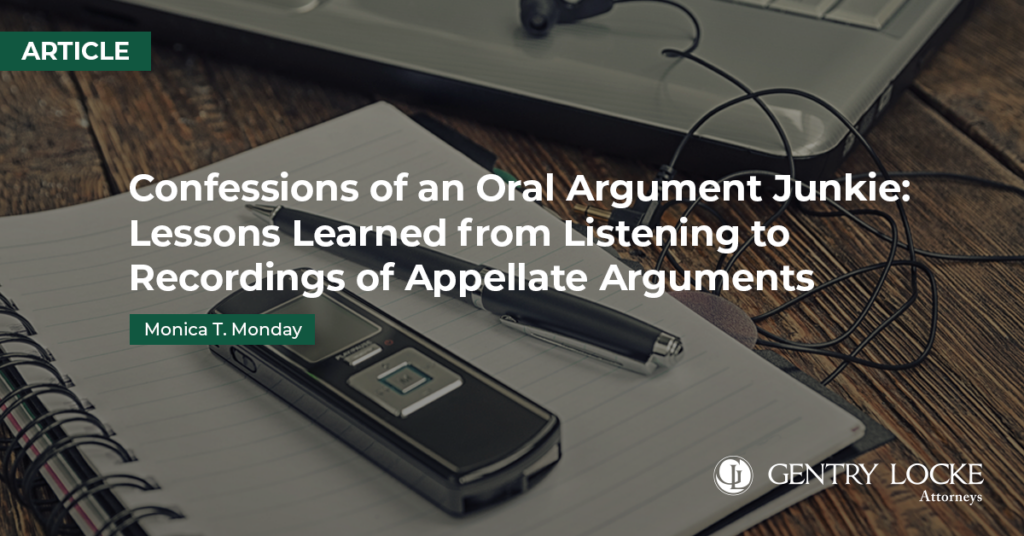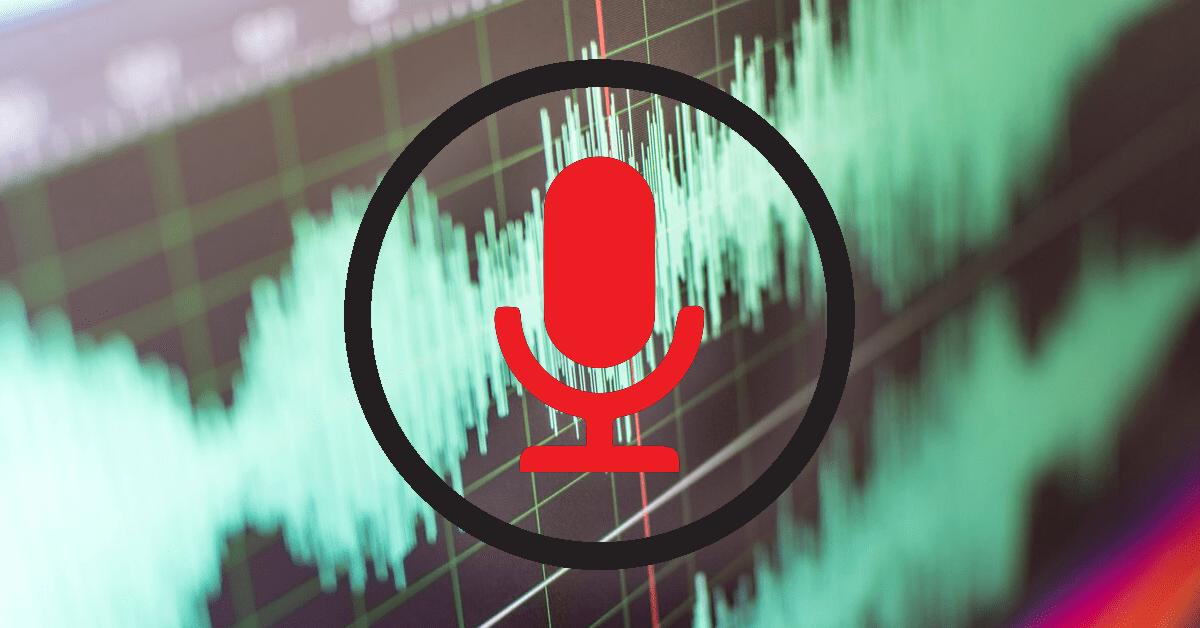Confessions of an Oral Argument Junkie: Lessons Learned from Listening to Recordings of Appellate Arguments

I admit it. I am an appellate argument junkie. This has been a long-standing problem, but one that took on new dimensions when the Supreme Court of Virginia began releasing audio recordings of oral arguments about ten years ago. I then began listening to the Court’s arguments in earnest. Now, of course, the availability of audio recordings of appellate arguments is ubiquitous. This means that anyone can hear an appellate argument without their leaving the house, car, or office. I don’t know about anyone else, but I’m hooked.
So is this a good habit or a bad one? Because I am an appellate lawyer, I think I can claim this habit as a good one. Supreme Court of Virginia recordings provide a look at the Court as a whole, how each of the seven justices approach the decision-making process, and how the justices interact with each other. Perhaps the same is true of appellate courts that sit in panels of three for argument, but a study of those courts as a whole are limited to the infrequent times when those courts sit en banc.
My habitual listening to appellate arguments for a decade has reinforced some suspicions I have had about the Supreme Court of Virginia, and about appellate arguments in general. And, they provide some valuable insight for appellate lawyers.
First, the justices are often talking to each other when they ask questions.
This is something that is hard to follow during the heat of oral argument. After listening to the argument after the fact, though, it is clear that many questions are not really for the advocate, but are directed towards another justice, or the entire Court. The justices are really discussing the case with each other and trying to convince their colleagues on the bench of their position. This provides a view into what an individual justice is thinking or how she might approach or decide the case.
So does this mean that the advocate’s answers don’t matter? Are we just pawns on the Court’s chess board? Not at all. Our answers to those questions can influence the judicial discussion that is playing out during the argument. And, equally important, those answers could affect the outcome of the case by showing why our position is right.
Second, some questions are not what they sounded like when asked.
During the argument, it can be difficult to really listen to the Court’s questions when you are focused on delivering a prepared argument and fielding a barrage of questions. Things become clearer with the luxury of hearing the argument again without the stress of being in the middle of it. In a post-hoc review, I have noticed that some questions were not exactly what I thought they were at the time; rather, the Court was asking something slightly different.
Good listening at oral argument is hard. It requires us to focus on the Court first, and our prepared argument second. Because the Court is the decision-maker, though, we must understand its concerns and questions so we can respond meaningfully. If we haven’t answered the Court’s questions, then we have not done our jobs as advocates. So, be flexible during oral argument. Weave the important points of the argument into your answers, but make sure you are addressing the issues the Court wants to discuss. Responding effectively and fully to the Court’s questions is a necessary step on the path to victory.
Third, the Court genuinely wants to understand the argument and its ramifications.
This is why the justices ask hypothetical questions. They want to test the boundaries and effect of a ruling in your favor in future cases involving different facts. And this is why a justice may press the advocate to define the scope of the ruling that is sought and to explain the effect of that ruling. Concisely explaining the scope and limiting principles of your position will greatly assist the Court in understanding the effect of adopting your position and becoming comfortable with it.
Embrace the opportunity to help the Court do its job well. Before you arrive at the courthouse steps, know the rule you are asking the Court to adopt, the limiting principles of that rule, and how it would apply in future cases involving different facts.

Finally, audio recordings only tell you half the story.
Listening to an audio recording of an argument I heard – or delivered – is a different experience than being there live. The visual, relational, and intangible aspects of a live argument cannot be captured in a recording. Many essential ingredients to an effective oral argument, such as genuineness, credibility, enthusiasm, engagement, and rapport with the Court are not fully experienced in an audio recording. Therefore, being there in person is the only way to fully appreciate an argument, although that won’t stop me from listening to recordings.
Because an effective argument needs the intangibles that are only possible with live engagement with the Court, you should not agree to argue your case by phone unless you have to. A live appearance is better.
You may access audio recordings of the Supreme Court of Virginia’s merits arguments since January 7, 2014, at http://courts.state.va.us/courts/scv/oral_arguments/home.html. Audio recordings of the Court of Appeals of Virginia’s arguments since May 20, 2014, are available at Court of Appeals Oral Arguments (vacourts.gov). To listen to audio recordings for arguments before the United States Court of Appeals for the Fourth Circuit since May 2011, click on this link: Listen to Oral Arguments (uscourts.gov).
Contact us today if you have any questions.





